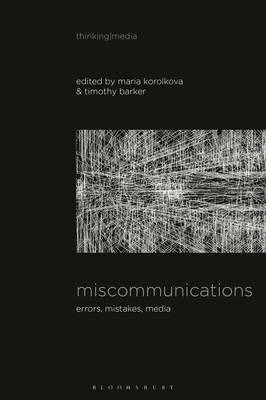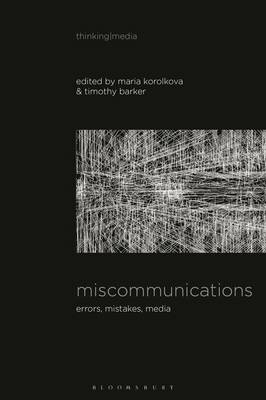
- Retrait gratuit dans votre magasin Club
- 7.000.000 titres dans notre catalogue
- Payer en toute sécurité
- Toujours un magasin près de chez vous
- Retrait gratuit dans votre magasin Club
- 7.000.0000 titres dans notre catalogue
- Payer en toute sécurité
- Toujours un magasin près de chez vous
69,45 €
+ 138 points
Description
What happens when communication breaks down? Is it the condition for mistakes and errors that is characteristic of digital culture? And if mistakes and errors have a certain power, what stands behind it?
To address these questions, this collection assembles a range of cutting-edge philosophical, socio-political, art historical and media theoretical inquiries that address contemporary culture as a terrain of miscommunication. If the period since the industrial revolution can be thought of as marked by the realisation of the possibilities for global communication, in terms of the telephone, telegraph, television, and finally the internet, Miscommunications shows that to think about the contemporary historical moment, a new history and theory of these devices needs to be written, one which illustrates the emergence of the current cultures of miscommunication and the powers of the false. The essays in the book chart the new conditions for discourse in the 21st century and collectively show how studies of communication can be refigured when we focus on the capacity for errors, accidents, mistakes, malfunctions and both intentional and non-intentional miscommunications.Spécifications
Parties prenantes
- Editeur:
Contenu
- Nombre de pages :
- 344
- Langue:
- Anglais
- Collection :
Caractéristiques
- EAN:
- 9781501373282
- Date de parution :
- 28-07-22
- Format:
- Livre broché
- Format numérique:
- Trade paperback (VS)
- Dimensions :
- 140 mm x 216 mm
- Poids :
- 399 g

Les avis
Nous publions uniquement les avis qui respectent les conditions requises. Consultez nos conditions pour les avis.





